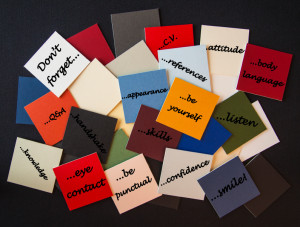 You may have heard of author Susan Cain and her book, “Quiet: The Power of Introverts in a World that Can’t Stop Talking.” The book has been extremely successful and has clearly resonated with many people. It has many implications for the workforce, and Susan has now addressed one of them in her recent TED talk, “Reconstructing the Job Interview.” She discusses the advantage that extroverts enjoy in the current results-oriented interview process and goes even further to say that, “The modern-day interview is mostly designed to hire narcissists.” This might seem somewhat harsh, but it’s not far from the truth. However, I would argue that if anyone is still using this process for hiring, they are miles behind where they should be, and where behavioral-based interviewing has taken us. This is a process that is good for both the introvert and the extrovert.
You may have heard of author Susan Cain and her book, “Quiet: The Power of Introverts in a World that Can’t Stop Talking.” The book has been extremely successful and has clearly resonated with many people. It has many implications for the workforce, and Susan has now addressed one of them in her recent TED talk, “Reconstructing the Job Interview.” She discusses the advantage that extroverts enjoy in the current results-oriented interview process and goes even further to say that, “The modern-day interview is mostly designed to hire narcissists.” This might seem somewhat harsh, but it’s not far from the truth. However, I would argue that if anyone is still using this process for hiring, they are miles behind where they should be, and where behavioral-based interviewing has taken us. This is a process that is good for both the introvert and the extrovert.
The problem with a lot of interviewing, (and here is where she and I agree), is that there really isn’t a process. It is actually more of a “beauty contest” and therefore the extrovert has the edge because they are skilled at conversation and know how to engage. The introvert does not have the same skills, and interviewers aren’t necessarily trained at interviewing and tend to go with those who make it easy to engage in conversation – advantage extrovert.
However, as I’ve discussed in my book and in multiple blogs, if you consistently follow a process, you will find the right fit for the job, introvert or extrovert. That’s where behavioral-based interviewing comes in. It’s based on the “things, actions, experiences” that the candidate has had and their ability to translate those into the skills or strengths required for the new position. Identifying a candidate’s strengths can ONLY be done by assessing past experience. An extrovert will wax on about all their successes, but when you press about specifics, it might be a different story. An introvert, however, when thoughtfully questioned, will likely have a much more solid story around a situation and what it took to get the task or project accomplished.
The key is to have identified what strengths are required for success in the position. Next, develop a series of questions that look for these strengths e.g.:
- Tell me about a time when you had to lead a project.
- How did that go?
- What do you think led to success?
- How did you manage people?
- How did you handle obstacles?
- Tell me about a specific roadblock.
- What would you do differently next time?
Once you identify their strengths, you continue to drill down until you are sure you have the answer you need to make a decision about this person. An introvert can answer questions, sometimes they just have difficulty starting or engaging in conversations that are fast-paced and intense. But unless you are hiring for a position where those strengths are critical, YOUR job as the interviewer is to be the extrovert and to ask the right questions.
As interviewers, we have to really be objective. It’s not about how much we like the person, (this is where extroverts have the edge, they want to be liked), it’s about whether or not they can do the job. Of course, you want to take into consideration the “likeability” of the candidate, but it comes second to strengths for the position. And always, hire for cultural fit. Great strengths with the wrong culture fit will always lead to a mis-hire. These cost about 3 times the annual salary to the company so it’s important to interview well, be thorough, and take your time. A good interview is as much dependent upon the interviewer as the interviewee.
